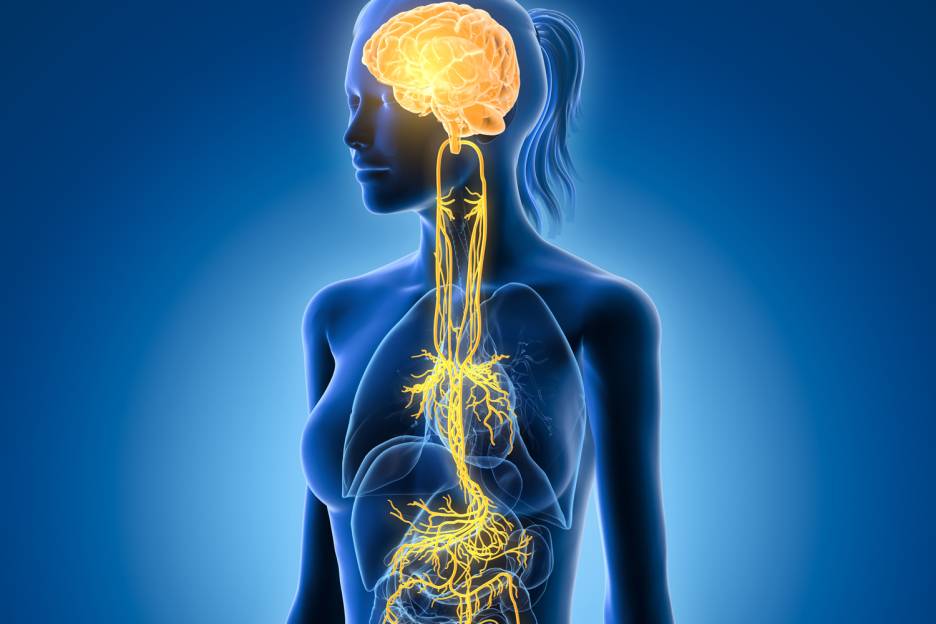
Monday – Friday: 10am – 7pm
Saturday: 10am – 6pm
Sunday: 1pm – 6pm

Your vagus nerve is actually a complex bundle of nerves that connect your brain to many areas of your body, allowing for two-way communication and assisting in a wide range of body processes.
Also called the 10th (or “X”) cranial nerve, it’s the longest nerve in the body.
Its name is derived from the Latin term for “wandering” (vaga, as in vagabond) because of the way it wanders around the body.
It connects the brain with your ear, throat, neck, heart, lungs, stomach, liver, and gallbladder.
The vagus nerve’s many critical functions include:
It’s particularly associated with the parasympathetic nervous system body functions—that is, the actions the body performs when in the “rest, repair, and digest” mode versus “fight or flight.” It helps us deal with stress, fear, and anxiety.
With all of this, the vagus nerve may play a role in the following, and so much more:
Many of the broader concepts of the vagus nerve’s effect on overall wellbeing and our ability to support it are still relatively new and not entirely understood.
Although more serious vagus nerve damage may require medical treatments such as vagus nerve stimulation, we can support our day-to-day vagal tone via various holistic approaches.
Singing, humming, and chanting help to activate the surrounding muscle to stimulate the vagus nerve. Gargling may also work via similar mechanisms.
Short but extreme cold temperature exposure like a 30-second cold shower, splashing cold water on the face, or rolling around in the snow with very little clothing may activate the vagus nerve and reduce the fight or flight response over time.
Breathing exercises, both immediately and with regular long-term practice, help support the parasympathetic and vagus nerve responses, which can be particularly helpful for stress, anxiety, and heart rate variability. There are many methods of breathwork, and they often take just a few minutes of time per day.
Meditation supports vagal tone and stress response, especially when practiced regularly.
Probiotics, prebiotics, fermented foods, and high-fiber, prebiotic-rich foods support the microbiome.
We’re still in the very early stages of understanding the role that herbs and supplements may play in vagal health. Consider nootropic, nervine, calming, and adaptogenic herbs such as: